This course will appeal to those people who are interested in training as a Psychotherapist to a high level of knowledge and skill. Systemic Psychotherapists work with relationships in the context of families, couples and other groups. It is a creative, innovative and thought provoking model of Psychotherapy which places ethics at the heart of the work.
This Programme is for graduates of the human sciences or suitable candidates applying under the APL (Approved Prior Learning) System who have relevant experience of working with people in a responsible caring role and who wish to develop their theoretical and clinical skills and qualify as Systemic Psychotherapists.
The Programme will appeal to:
This course is directed at a broad range of health and social care professionals who wish to develop their skills and knowledge in working as Systemic Psychotherapists with individuals, couples and families. Live supervision of Clinical Practice is central to this training supported by core subjects of Theory and Methodology, Research and Personal/Professional connections. The integration of Clinical Practice, Systemic Theories, Psychotherapy Research and Self reflection is key to this training.
Students on the programme will develop an understanding of systemic theory and methodology and its application in clinical practice. Students will practice their clinical skills in live supervision sessions and will have opportunities to develop their ability to reflect on personal and professional connections in the therapeutic context. Through the completion of a Dissertation, students will develop skills in Research methodology and practice.
The Professional Masters in Systemic Psychotherapy (Ind, Couple, Families) aims to progress students along a path leading towards responsible creative therapeutic practices as independent practitioners in both Health/Social Care and Private Practice settings. Through a mixture of skill development, theoretical education and enhanced capacity for self reflection, the course facilitates the growth and development of students as practitioners concerned with an extensive array of clinical presentations.
The four elements of the training are as follows:
Theory and Methodology
Students will be learning about the emergence of the Systemic Family Therapy tradition from its origins in the 1950’s to current time. Topics covered will include Systemic Theories and Practice; Social Constructionism; Narrative and Dialogical Therapy; Socio-cultural and Ethical issues in Systemic Practice; Psychopathology and its critiques; Theories of Human Development; and an introduction to Research in Systemic Practice. The learning will occur in weekly lectures / seminars and will be based upon relevant prescribed readings.
Clinical Practice (based on live supervision and retrospective supervision)
Students will undertake weekly clinical work as part of a supervised training group. In year 4 of the programme students will obtain their clinical practice outside of the training context and will receive retrospective supervision for this within the training programme.
Personal Professional Development and Integration (PPDI)
This training element is realised through a weekly facilitated group experience in addition to weekly written exercises.
Research Design and Methodology
Each year the training provides teaching in Research Design and Methodology. This element of the course culminates in the student production of a Dissertation (12,000 –15,000) words.
Modules in the four main strands of the programme are delivered over the four years. Each year of the programme is divided into the following modules:
Each of the modules are core modules. There are no electives.
Please find more specific information about the year modules at the links below:
| Year 1 | |
| PSCO40250 | Personal Professional Development and Integration (PPDI) Y1 |
| PSCO40260 | Theories & Methods of Systemic Practice: Foundation |
| PSCO40270 | Skills & Techniques of Systemic Practice: Foundation |
| PSCO40280 | Skills & Techniques of Systemic Practice: Development |
| Year 2 | |
| PSCO40290 | Theories & Methods of Systemic Practice Y2 |
| PSCO40310 | Foundational Ethics in Systemic Practice |
| PSCO40300 | Integration Y2 |
| PSCO40330 | Research Skills Y2 |
| PSCO40340 | Live Supervision Y2 |
| PSCO40320 | Personal Professional Development and Integration (PPDI) Y2 |
| Year 3 | |
| PSYC40030 | Retrospective Supervision Y3 |
| PSYC40060 | Contemp Systemic Theory Y3 |
| PSYC40100 | Integration Y3 |
| PSYC40190 | Research Y3 |
| PSYC40210 | Live Supervision Y3 |
| PSYC40260 | Personal Professional Development and Integration (PPDI) Y3 |
| Year 4 | |
| PSYC40070 | Contemp. Systemic Theory Y4 |
| PSYC40140 | Retrospective Supervision Y4 |
| PSYC40270 | Personal Professional Development and Integration (PPDI) Y4 |
| PSYC40280 | Research Y4 |
This four year part-time Professional Masters in Psychotherapy (Ind, Couple, Families) degree is delivered in UCD School of Medicine.
Established in the 1980s this Programme has developed both a national and international reputation as a centre of training excellence.
Our experienced faculty of teachers and trainers has ensured that the programme offerings at M.Sc. level invite student engagement right at the cutting edge of developments in systemic therapy. Alongside course faculty, a continuing flow of clinicians and teachers of international renown contribute to the education and training of Masters level students.
The minimum four-year Professional Masters in Psychotherapy (Ind, Couple, Families) is accredited by the Family Therapy Association of Ireland (FTAI) a constituent member of the Irish Council for Psychotherapy (ICP) which is a member of the European Association for Psychotherapy (EAP)
This graduate level programme is open to candidates who have three years graduate level training in the human sciences (medicine, psychology, social work, sociology, education, etc) or its equivalent. Applicants must have relevant experience of working in a responsible and caring role with people. During training they will be expected to work in a setting which provides opportunities for clinical practice.
Applicants must have:
International applicants should contact UCD Global to find out about their own specific eligibility for postgraduate study in Ireland on this programme.
A list of FAQs for international applicants is available here: https://www.ucd.ie/global/study-at-ucd/faqs/
Areas in which Systemic Psychotherapists have previously secured employment or developed experience in independent practices include:
Graduates from the programme have a qualification that is recognised within Europe, which facilitates employment mobility.
With regard to the anticipated deployment of Psychotherapists throughout the Health Services (Ref. Vision for Change 2006 Dept. of Health and Children) Psychotherapy graduates from this programme will have met all the requirements for employment as registered Psychotherapists
We are currently accepting PhD proposals for January 2024 and September 2024 deadlines. Please note that research proposals should be aligned with the core research topics of the team.
The core research topics are:
For more information, please contact the Research Coordinator, Marina Everri, at marina.everri@ucd.ie.
For more information on course fees please visit the Fees & Grants Office website.
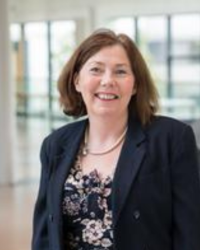
Prof Valerie O’Brien has been the Programme Director of the Systemic Psychotherapy programme since 2018. She has a background in social work and trained social workers at the School of Social Policy, Social Work and Social Justice in UCD from 1996 - 2018. Previous to taking over the role of Programme Director, she worked as an associate at Clanwilliam Institute Dublin where she facilitated the clinical training of family therapists. She completed the first major study on relative care in Ireland in 1997 using a fifth province methodology (McCarthy, Byrne and Kearney) for which she was awarded a PhD. Many of the ideas generated in this work have been influential in the field. She is a clinician, clinical supervisor and researcher, with a particular interest in practice and service development. She has led a number of action-based demonstration projects in respect of foster and relative care, family group conferencing and adoption. In addition to this, she was a consultant to the National Care Planning Project and has published widely in these areas. She continues to consult with agencies both in Ireland and overseas at both a service delivery and case level. She is a board member of the European Family Therapy Association where she currently serves as the Chair of the Task Force for Training Standards in Systemic Psychotherapy.
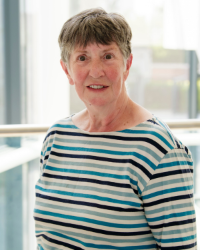
Mara de Lacy holds a Master's in Classics and in Systemic Psychotherapy. She has worked in the community/voluntary, state/public, and private sector specialising in areas such as mental health and addiction. She has been involved in the criminal justice system and in mental health services since the 1990’s both in designated mental health facilities and in general medical settings. She has been a consultant to a community mental health and addiction service since 2012 and has been involved in lecturing on various Systemic Psychotherapy programmes to Master's level since 2018. Mara enjoys her lecturing and supporting students’ development in their systemic training. She has considerable experience of supervising systemic therapy teams in the context of live working situations. Mara also has significant experience in group facilitation and has been offering groupwork and systemic therapy consistently both in-person and, since the Covid-19 pandemic, on Zoom.
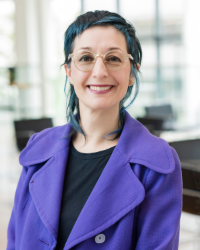
Dr Marina Everri is passionate about the study of family relations and child development and how current societal challenges (digital media, stigma and discrimination toward sexual minority families, Covid-19 pandemic) are transforming parent-child relationships and are impacting on children and parents’ mental health. She has also worked on the development of research methods (e.g.; the family interview, the stance-taking process analysis) informed by a systemic approach. She was awarded a PhD in Social Psychology at the University of Parma, Italy, and a Marie Curie Postdoctoral fellowship at the London School of Economics and Political Sciences. She was trained as a systemic psychotherapist and clinical supervisor in Italy (Milan School).
Dr Everri has published in international journals, book chapters, and edited a book on same-sex families. Also, she is adjunct faculty member of the “Centro Bolognese di Terapia Familiare”. Marina joined UCD in 2017, first as Director of Research in a start-up in NovaUCD as part of an EU research grant, and in 2019, as Assistant Professor in the School of Medicine. Currently, she coordinates research modules and teaches Theory and Clinical modules in the MSc Systemic Psychotherapy Programme. She is Director of the AdoDigitFam Research Lab which she co-founded with Mattia Messena. More details on Marina’s research and teaching can be found here.
Email: marina.everri@ucd.ie
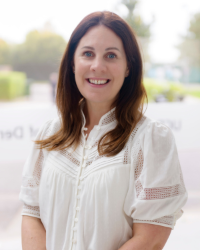
Diane Hanly holds a Masters in Social work and in Systemic Psychotherapy. She specialises in the areas of Child Sexual Abuse and Developmental Trauma. She provides consultation, training and therapeutic input to a number of agencies nationally, including TUSLA, residential units and other statutory services. She has been involved in lecturing in Trinity and University College Dublin since 2015. Over the last number of years she has developed a keen interest in teaching and learning methods as they relate to the training of systemic psychotherapists. With the onset of the COVID-19 pandemic, she focused this interest in online working. She commenced her PhD in 2020 in the UCD School of Medicine. Her area of research is the experience of trainee systemic therapists and clinical supervisors in participating in online live supervision. She is also currently employed as an Assistant Professor in the school of medicine on a part-time basis.
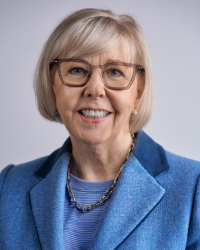
Deirdre Hayes has been working as a lecturer and live clinical supervisor on the Masters programme led by Prof Valerie O'Brien since 2018. Deirdre has worked in the area of Child Sexual Abuse both in Ireland and the UK. Currently her speciality is in couples work. In addition to this, she lectures on Systemic Approaches to Psychotherapy abroad in the UK, Scandinavia (Sweden and Denmark), Egypt, China and Singapore where she lived and worked for a number of years. She is interested in the personal and professional development of students and professional psychotherapists and how they maintain their self reflexivity over years of practice, as well as remaining effective in their work.
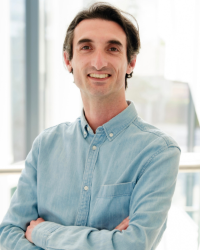
Mattia holds a Master’s Degree in Psychology from the University of Parma and a specialisation in Forensic Psychology from IPP Brescia. He is enrolled in the Italian Psychologists board. His research interests primarily revolve around the role of digital technologies on interpersonal relationships and well-being, with a specific focus on children and adolescents. In 2020 he received a grant for a 4-year PhD project under the IRC Employment-Based Postgraduate Programme in partnership with CyberSafeKids and University College Dublin. He is currently a PhD Student at UCD School of Medicine and he is also working as a Research Officer for CyberSafeKids to address issues related to online safety and well-being for children and adolescents. He was a lecturer in the research modules of the UCD MSc in Systemic Psychotherapy and he is a committee member of the UCD Graduate Research Association of Medicine (GRAM).
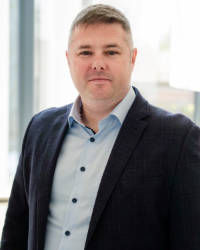
Dr Niall Reynolds has 18 years’ experience working in child protection, welfare, and therapy services and holds a Professional Doctorate in Advanced Research and Practice in Systemic Psychotherapy, an MSc in Systemic Psychotherapy and BA in Social Care Practice. A graduate of the Tavistock and Portman Clinic London, Dr Reynolds completed his doctoral training with a special interest in parental experiences of having a child who has sexually harmed another in an Irish context. He is currently appointed for a three-year term to the Tusla research ethics committee as an independent member. For 10 years Dr Reynolds worked as part of the Tusla NIAPP team, which is an assessment and treatment service for children and their families who have engaged in harmful sexual behavior toward another. In his private practice Dr Reynolds works as a Systemic Psychotherapist mainly with family law cases that are subject to High Court proceedings.
In 2021 Dr Reynolds joined the faculty of the Prof Masters in Systemic Psychotherapy (Ind, Couple, Families) at the UCD School of Medicine, where he teaches and supervises systemic research. Dr Reynolds has published in the areas of aftercare, reflective practice, harmful sexual behavior and creative responses to challenging behaviours in adolescents. In 2023 he also founded The Relational Space, a nationwide service providing training, consultation, and systemic psychotherapy for children and families. Currently Dr Reynolds is training to be a Systemic Supervisor and in 2023 completed a PG Cert in Trauma Informed Care.
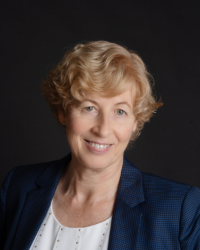
Anne Richardson is a qualified professional in the field of social care, social work, and systemic psychotherapy, with extensive experience in training and supervision. Over the past three decades, Anne has actively contributed to the development and guidance of social workers and family therapists through her various teaching positions, including lecturing on the Masters in Social Work programme at University College Dublin, the Eating Disorders Postgraduate Diploma at University of Ulster, as a clinical supervisor and lecturer on the Family Therapy programme at the Clanwilliam Institute in Dublin, and as a practice teacher on the Masters in Social Work programmes at University College Dublin and Trinity College Dublin. Alongside her teaching commitments, Anne’s professional practice has focused on working systemically with adolescents, young adults, and adults in St Patrick’s Mental Health Service. Additionally, Anne served as the CEO of Connect, a support and counselling service for people who have suffered abuse, trauma or neglect in their childhood. Currently, Anne provides clinical supervision and consultancy services to individuals and teams operating within both the private and public sectors.
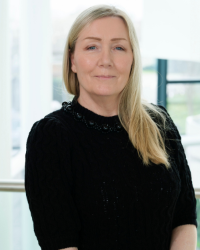
Dr Geraldine Richardson’s journey with the Systemic Family Therapy approach to engagement started many years ago in the CAMHS settings, with the noticing of the family’s worries as they came to our teams. Her training journey started in UCD where she obtained a MSc Distinction. Dr Richardson holds a Doctorate in Systemic Family, Couple and Individual Psychotherapy Tavistock and Portman Foundation Trust, UK), and she is registered as a Systemic Psychotherapist Clinical Supervisor, as completed in Trinity College Dublin. Dr Richardson specialised in Young person’s/ young adults mental health with particular interest in the process of an Eating Distress and how it moves within a family system.
She holds a special interest in a systemic-dialogical approach to engagement, a process that fits with the many challenges of our current lives and with the families who we have the privilege of sitting with.
Her systemic journey has reached out to many unique work settings, inclusive of Saudi Arabia ( KSA), Qatar, UK, and America. With these travels, Cultural humility rather than cultural competence has become central to her practice.
Dr. Valerie O'Brien
T: 00353 1 716 6602
E: valerie.obrien@ucd.ie